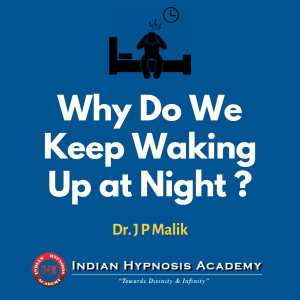Depression can feel like a heavy fog, shrouding every aspect of life in darkness. Many people struggle silently, searching for relief and healing. Traditional treatments often include medication and therapy, but these methods may not work for everyone. What if there was an alternative approach that could illuminate the path to recovery?
Hypnotherapy is emerging as a powerful tool in the fight against depression. By tapping into the subconscious mind, this technique offers unique insights and healing potential that traditional methods sometimes overlook. With an increasing number of success stories highlighting its effectiveness, it’s time to explore how hypnotherapy can help lift the weight of depression and embrace a brighter future.
Understanding Depression: Causes and Symptoms
Depression is more than just feeling sad. It’s a complex mental health condition with various underlying causes. Biological factors, such as genetics and brain chemistry, often play significant roles. Stressful life events like trauma, loss, or relationship issues can trigger episodes too.
The symptoms vary widely from person to person. Common signs include persistent sadness, fatigue, and irritability. Many experience changes in appetite or sleep patterns—some might eat less while others overindulge.
Cognitive symptoms also come into play; feelings of worthlessness and difficulty concentrating are prevalent. Interestingly, depression isn’t always obvious on the surface. Some may mask their struggles behind smiles or distractions.
Understanding these nuances is crucial for those dealing with this disorder—and for loved ones who want to support them effectively.
Traditional Treatments for Depression
Traditional treatments for depression often include a mix of medication and therapy. Antidepressants are commonly prescribed to help balance chemicals in the brain. These medications can be effective, but they may come with side effects that some find challenging.
Cognitive Behavioral Therapy (CBT) is another popular option. It focuses on changing negative thought patterns and behaviors that contribute to depression. Through guided sessions, individuals learn coping mechanisms and strategies to manage their emotions.
Support groups also play a vital role in traditional treatment approaches. Connecting with others facing similar challenges fosters a sense of community and understanding.
Lifestyle changes like exercise, proper nutrition, and sleep hygiene are frequently recommended as complementary methods. Each person’s journey through depression is unique, making it essential to explore various options tailored to individual needs.
The Power of Hypnotherapy in Healing Mental Health Issues
Hypnotherapy holds a unique place in the realm of mental health treatment. It taps into the subconscious, accessing thoughts and feelings that may be buried deep within.
This therapeutic approach can unlock pathways to healing by addressing root causes of depression. Many individuals find that it allows them to reframe negative thought patterns. Such shifts can lead to profound changes in emotional well-being.
The process is gentle yet powerful. A trained hypnotherapist guides clients through relaxation techniques, creating a safe space for exploration. This encourages greater self-awareness and insight.
Moreover, hypnotherapy often complements other treatments effectively, enhancing their results. People frequently report feeling lighter and more hopeful after sessions, as if a weight has been lifted from their shoulders.
As awareness grows about its benefits, more people are turning to this alternative method for support on their journey toward mental wellness.
How Does Hypnotherapy Work?
Hypnotherapy works by guiding individuals into a state of focused relaxation. In this calm state, the subconscious mind becomes more open to suggestions. It allows for deeper exploration of thoughts and feelings.
During a session, a trained hypnotherapist uses verbal cues and imagery to help clients access memories and emotions that may be contributing to their depression. This process can uncover underlying issues that need addressing.
The therapist helps reframe negative thought patterns. By doing so, they encourage healthier perspectives on challenges faced in daily life.
This method doesn’t just mask symptoms; it aims at the root causes of emotional pain. Clients often leave sessions feeling lighter and more empowered, equipped with tools to manage their mental health effectively.
It’s essential for these sessions to be tailored specifically for each individual’s needs, ensuring optimal results in their healing journey.
Case Studies: Success Stories of Using Hypnotherapy to Overcome Depression
Many individuals have found solace in hypnotherapy, reclaiming their lives from the grips of depression. One remarkable case involved a young woman named Sarah. Struggling with persistent sadness and anxiety, she turned to hypnotherapy after traditional treatments offered little relief. Through guided sessions, she uncovered deep-seated beliefs that fueled her despair.
Another success story comes from John, who faced debilitating depression after a traumatic experience. His therapist used hypnosis to help him reframe his memories and develop healthier coping mechanisms. After several sessions, John reported feeling lighter and more optimistic about his future.
These transformative journeys showcase how hypnotherapy can unlock inner resources and pave the way for healing. Each session provides clients with renewed hope as they explore their subconscious minds, leading to profound changes in emotional well-being. The stories are inspiring reminders of the resilience within us all when given the right tools for recovery.
Combining Hypnotherapy with Other Therapies for Maximum Results
Integrating hypnotherapy with other therapeutic approaches can amplify healing effects. Many individuals find that combining it with cognitive behavioral therapy (CBT) enhances their ability to tackle negative thought patterns.
Mindfulness practices, such as meditation or yoga, also complement hypnotherapy beautifully. They foster a deeper connection between mind and body, promoting relaxation and awareness during sessions.
Moreover, nutritional counseling can play an essential role in mental health. A balanced diet supports brain function and emotional stability, making the benefits of hypnotherapy even more pronounced.
Group therapy adds another layer of support. Sharing experiences within a community creates a sense of belonging that reinforces personal growth achieved through hypnotherapy.
The synergy among these therapies offers patients varied tools for coping with depression and anxiety. By customizing treatment plans tailored to individual needs, one can unlock new pathways toward recovery.
Tips for Finding a Qualified Hypnotherapist and Preparing for Sessions
Finding a qualified hypnotherapist can feel overwhelming, but a few key steps can make it easier. Start by seeking recommendations from friends or health professionals who understand the field. Online directories and professional organizations can also help you locate certified practitioners in your area.
Once you have potential names, research their backgrounds. Look for credentials, specializations, and client testimonials to ensure they fit your needs. Don’t hesitate to schedule an initial consultation; this is your chance to gauge comfort levels and ask questions about their approach.
Before sessions begin, prepare yourself mentally. Consider what specific issues you’d like to address during therapy. Setting clear intentions will guide the process and enhance its effectiveness.
Practice relaxation techniques leading up to appointments. Arriving calm creates an open space for healing and deeper exploration of your mind’s potential.
The Importance of Self-Care and Mindfulness in Depression
Self-care is not just a luxury; it’s a necessity, especially when grappling with depression. Taking time for yourself can create small moments of joy and peace amidst the chaos.
Mindfulness plays an essential role in this journey. It encourages you to stay present and acknowledge your feelings without judgment. This practice helps to reduce anxiety and improve emotional regulation.
Simple activities like deep breathing or meditation can be transformative. They allow individuals to connect more deeply with themselves, fostering self-awareness.
Engaging in physical activity also has profound effects on mental health. A walk outside or practicing yoga brings both movement and mindfulness together.
Incorporating healthy eating habits nourishes the body, which influences mood positively too. Each step toward self-care adds up—creating a foundation for healing that supports overall well-being during tough times.
CONCLUSION
Healing from depression is a journey that often requires exploring different avenues. Embracing hypnotherapy can be a transformative experience for many individuals seeking relief from their struggles.
Understanding the roots of depression, whether they stem from genetics, environment, or personal experiences, is crucial in finding effective treatments. Traditional approaches like medication and therapy have helped many but may not resonate with everyone.
Hypnotherapy offers a unique method by tapping into the subconscious mind to uncover underlying issues and promote positive change. Its effectiveness shines through numerous case studies where people have found renewed hope and clarity.
Combining hypnotherapy with other therapies enhances its benefits, creating a holistic approach to mental health care. Finding the right qualified hypnotherapist can elevate this experience significantly.
Additionally, incorporating self-care practices and mindfulness techniques nurtures emotional resilience. They complement therapeutic efforts seamlessly.
By embracing these methods together—hypnotherapy, traditional treatments, self-care—you create a comprehensive support system tailored for healing depression. Each step taken toward recovery is significant on this important journey towards wellness and joy.




